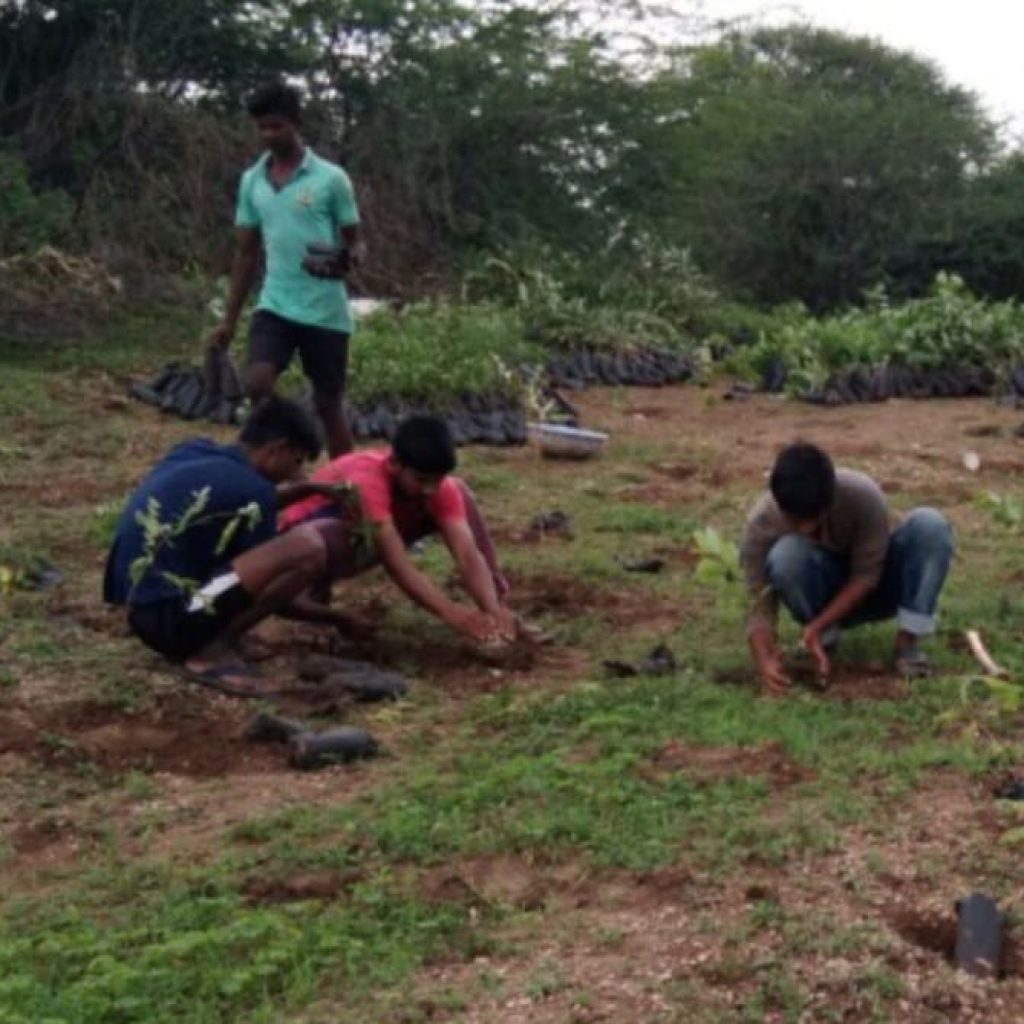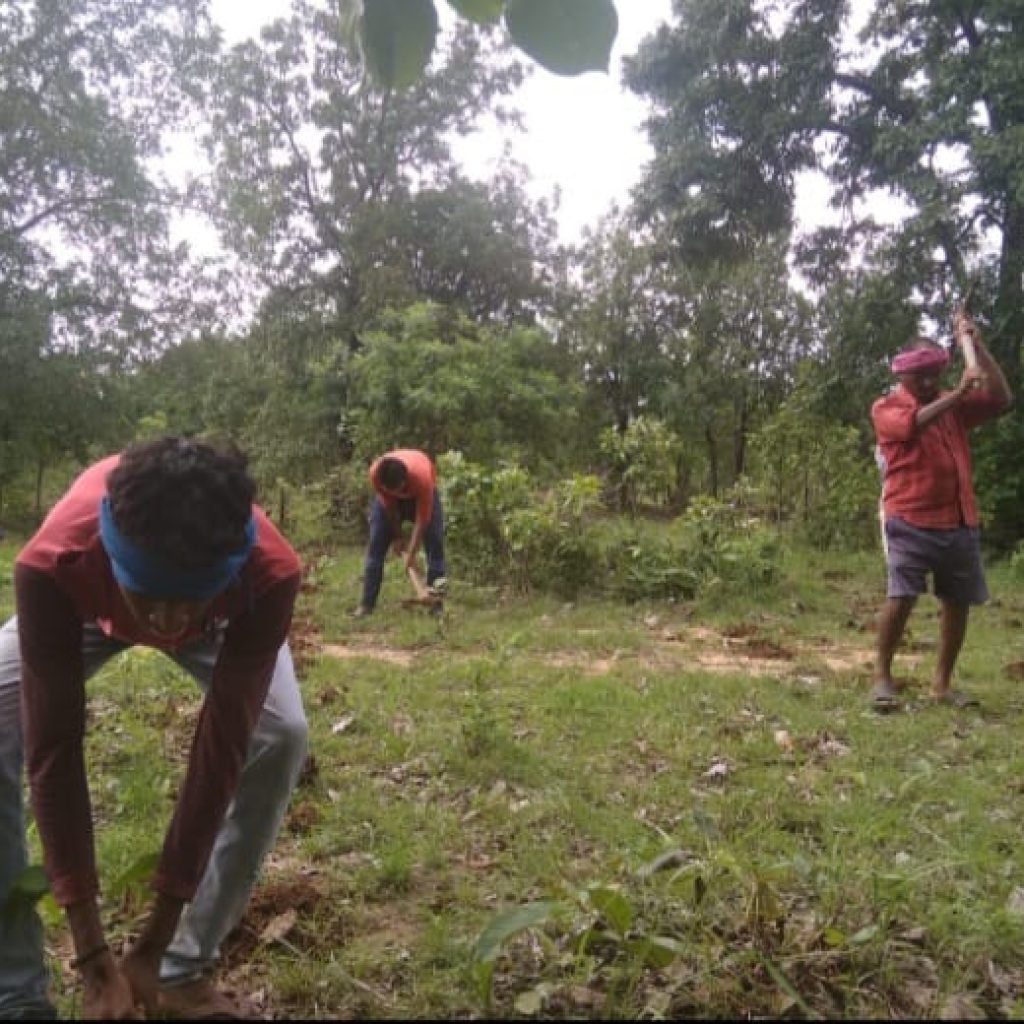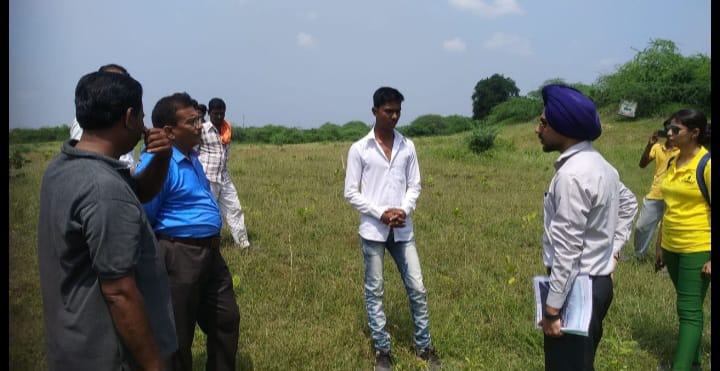The Trees for Villagers™ in Yavatmal, Maharashtra is not only benefitting the ecology but also local communities
While Maharashtra’s Yavatmal district continues to be in the news for an unrelenting agrarian crisis, the town of Yavatmal recorded a maximum temperature of over 46 degrees in June. Hope and sustenance in such a bleak scenario has come to Yavatmal’s rural population from a plantation project of over 40,000 trees which will not only help to stabilize the climate but also generate ample employment opportunities for residents like Jaya Mithun Jogdle and Gopal Kitna Kamale.
Jaya shares how the project has changed her life, “Being part of the project has been truly transformative. Not only have I contributed to a greener environment, but also found a steady source of income to support my family’s needs. I am grateful to be a part of such a meaningful initiative that not only benefits me but also the community.” Gopal adds, “Participating in the plantation project has been very rewarding. The trees we planted will not only provide shade during hot summers but also create a thriving habitat for local wildlife. I am thrilled that our efforts will benefit both the environment and the community.”

This project by social enterprise Grow-Trees.com is titled Trees for Villagers™ and has demonstrated that a community-centric, eco-sensitive approach cannot just benefit biodiversity but also bring abundance to rural citizens like Dilip Madhukar Wankhede, a resident of Palodi village. Dilip saved the income he earned from the project and purchased a sewing machine. While Dilip took on labour work, his wife started sewing at home and the family began to enjoy more financial stability. Another beneficiary, Pratibha Wankhede, successfully paid for her daughter’s coaching classes with the extra income.

Discussing the overarching purpose of the project, co-founder of Grow-Trees.com, Mr Pradip Shah says, ” Yavatmal, is located in the Vidarbha region and is prone to drought, an erratic monsoon cycle and has been suffering from extreme agrarian distress. Strategically planting trees is one of the easiest ways to regulate weather patterns, combat climate change and also alleviate economic distress. Trees can play a crucial role in improving the health of degraded, drought-prone lands by increasing humidity through transpiration, which can lead to cloud formation and rainfall. Their root systems also improve soil structure and water retention, reducing runoff and erosion. Not to mention the economic benefits that local communities can reap by participating in the plantation activities.”
Villagers have been earning regular wages from various plantation activities including nursery development, transportation and maintenance. Harvesting fruits, nuts, and other non-timber forest products (NTFPs) will provide additional sources of income and nutritional diversity. Fuelwood will also help meet household energy needs and reduce dependence on external fuel sources.
The species which have been planted in the region include Bamboo (Dendrocalamus spp) and Drumstick tree (Moringa spp). Bamboo groves will function as carbon sinks, provide organic matter, regulate water levels and also create a bio-fence around crop fields to mitigate human-wildlife conflict. Drumstick is drought-resistant and offers many medicinal and nutritional properties. Other tree species that have been planted include Acacia arabica (Babool), Acacia leucophleca (Hiwar), Zizyphus jujuba (Bor), Butea monosperna (Palas), and Belanites rexburghii (Hinganbet) etc. On maturity, these 40,000 trees are expected to absorb a minimum of 800,000 kgs of atmospheric carbon.
There is no doubt that enhanced biodiversity makes the ecosystem more resilient to drought conditions. However, Mr Shah offers a more comprehensive view of the prevailing crisis in Yavatmal and points out that factors like limited access to irrigation, inadequate crop insurance, and fluctuating market prices must be addressed as well as increasing the vulnerability of farming communities.




